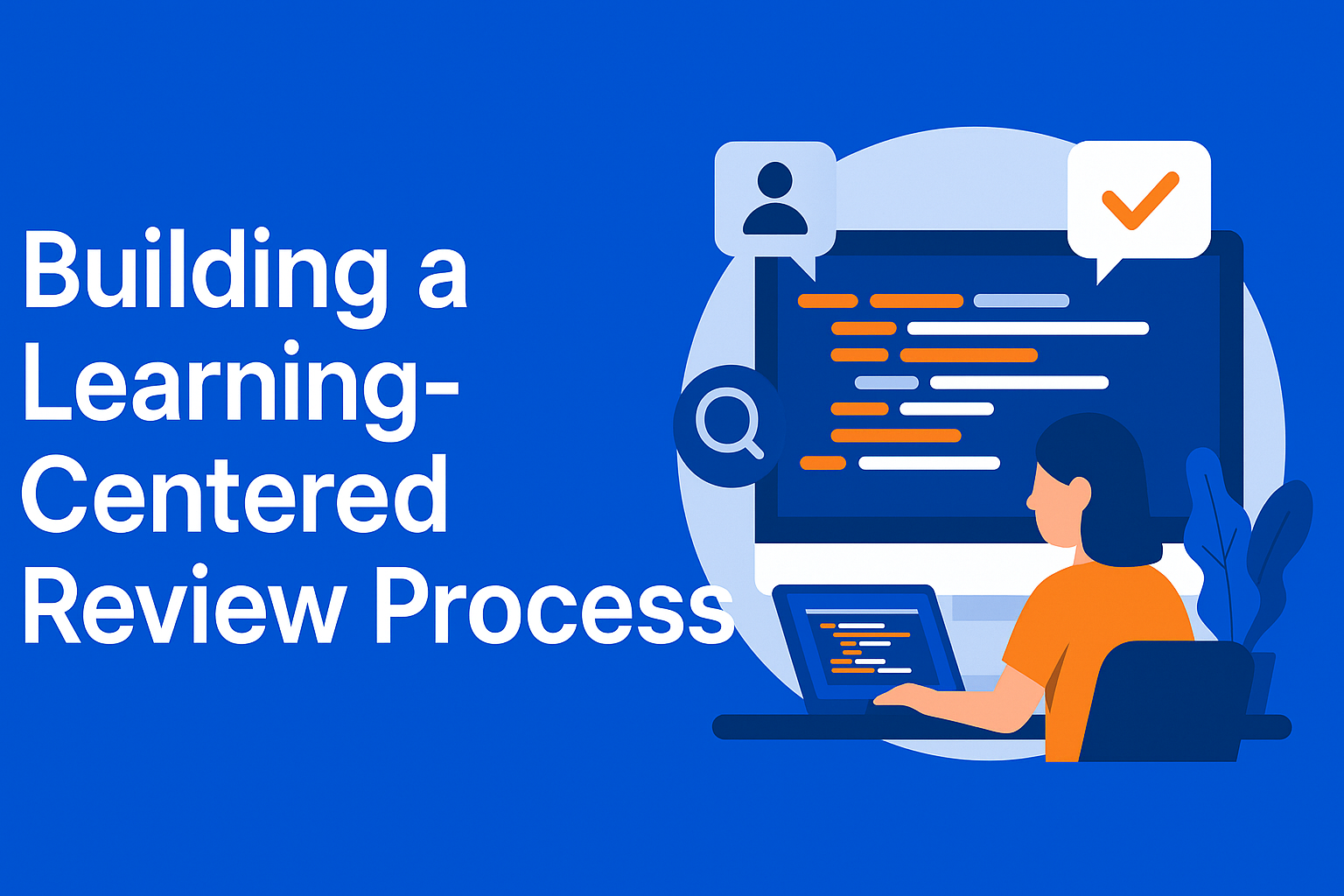Estimated reading time: 9–10 minutes
Code reviews are a cornerstone of software quality — but in many teams, they’ve become rigid, stressful rituals. Instead of fostering collaboration and shared growth, reviews often feel like judgment sessions that slow down progress.
The best engineering organizations flip that narrative. For them, code reviews are not checkpoints — they’re learning opportunities that help developers grow, teams align on standards, and products improve faster.
Let’s explore how to make code reviews more about learning and less about policing.
Table of Contents
- The Original Purpose of Code Reviews
- How Code Reviews Lost Their Way
- The Hidden Cost of Policing Culture
- Building a Learning-Centered Review Process
- Practical Tactics for Productive Reviews
- From Compliance to Collaboration: The Long-Term Payoff
1. The Original Purpose of Code Reviews
Code reviews began as peer-driven methods to share knowledge and ensure reliability. Early research by SmartBear found that collaborative reviews — where feedback is discussed rather than imposed — improve both code quality and developer morale.
The original goal wasn’t to find mistakes; it was to make the whole team smarter. Developers learned new patterns, improved consistency, and spread ownership across the codebase.
2. How Code Reviews Lost Their Way

Over time, as teams grew and deadlines tightened, code reviews started resembling audits. Many developers now dread them — they become bottlenecks, ego clashes, or performative exercises.
This shift often happens in scaling teams that haven’t adapted processes to match their growth, much like what we discussed in Why Startups Fail at Scaling Beyond the First 20 Engineers.
The problem isn’t the review itself — it’s the culture around it. When developers fear critique, learning stops.
3. The Hidden Cost of Policing Culture
A “gotcha” review culture leads to:
- Slower delivery due to over-analysis of minor issues
- Lower morale as developers feel scrutinized, not supported
- Missed growth opportunities since reviews become about compliance, not education
- High turnover in teams where feedback feels personal, not professional
As GitLab’s engineering handbook suggests, reviewers should aim to clarify, not criticize — focusing on why something matters rather than who did it wrong.
4. Building a Learning-Centered Review Process

A learning-driven review process starts with intention. Leaders can create a healthier dynamic by:
- Framing feedback constructively (“Consider using X because it improves Y”)
- Encouraging questions instead of statements
- Pairing juniors with seniors for mentorship, not gatekeeping
- Reviewing smaller, frequent PRs for faster learning cycles
- Documenting lessons learned after major reviews
This mindset mirrors what we emphasize in How to Conduct Effective Code Reviews with Distributed Teams — feedback should scale learning, not bureaucracy.
5. Practical Tactics for Productive Reviews
To keep reviews fast and valuable:
- Use checklists that focus on architecture and logic, not nitpicks
- Automate style checks (linters, formatters) so humans discuss meaningful things
- Encourage reviewers to explain reasoning, not just point out issues
- Celebrate great commits in retros — positivity reinforces best practices
- Track review turnaround times — long delays kill momentum
A great rule of thumb: if your team dreads reviews, something’s wrong with your approach, not your people.
6. From Compliance to Collaboration: The Long-Term Payoff
When teams shift from policing to learning, everything changes:
- Developers become mentors and students at the same time
- Knowledge spreads naturally
- New hires onboard faster
- Product quality improves through shared standards
A learning-first code review culture creates psychological safety — and that’s the foundation of innovation.
Reviews done right aren’t about approval. They’re about progress.
Looking to scale more efficiently? Connect with iDelsoft.com! We specialize in developing software and AI products, while helping startups and U.S. businesses hire top remote technical talent—at 70% less than the cost of a full-time U.S. hire. Schedule a call to learn more!





